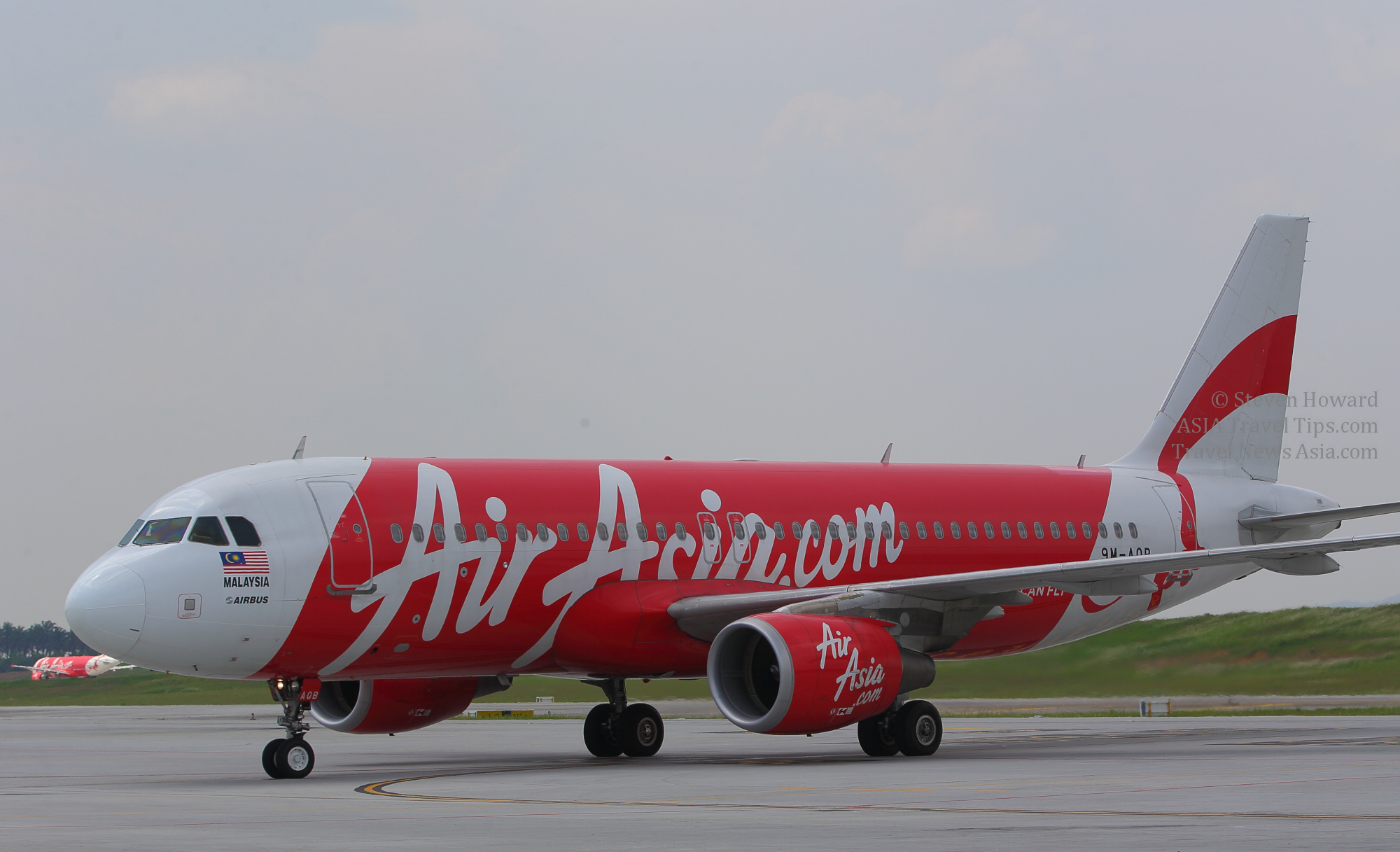|
The AirAsia Group, which includes
Malaysia, Indonesia and Philippines, posted Q1 2020 revenue of
RM2.3 billion, down 15% from RM2.7 billion in Q1 2019.
Despite kickstarting the year with a strong
performance in January 2020, the uncertainty of the ongoing global
COVID19 pandemic as well as increasing travel restrictions and
border controls in regards to COVID19 has led to weaker air travel
demand in February and March.
The reduction in Available Seat Kilometre
(ASK) by 19% was primarily due to proactive capacity management to
mitigate the impact. Q1 2020 ancillary revenue also decreased by
16% year-on-year to RM556 million, dragged by airline ancillary
which declined 28% mainly due to removal of processing fees and
22% less passengers carried. Non-airline ancillary revenue grew
27% y-o-y.
The group posted a breakeven
in Q1 2020 EBITDA in comparison to EBITDA of RM565 million in Q1
2019, as EBITDA losses incurred in MAA and IAA was cushioned by
PAA�s positive EBITDA for the quarter. Teleport�s EBITDA grew 22%
to RM63 million in Q1 2020.

The net loss for the period was RM953 million
(approximately US$ 222.6 million),
compared to RM102 million in profit in the previous corresponding
quarter. The loss was attributed to a shortfall in revenue amidst
impacted travel demand, higher maintenance and overhaul costs by
54% due to the accounting impact from the change in aircraft
ownership (MFRS137), loss on settlement from fuel hedging
amounting to RM110 million and fair value loss on derivatives of
RM270 million.
Operating & Market Share
Performance
RASK for the group increased
by 2% to 15.33 sen in Q1 2020, attributed to a better pricing
strategy adopted since Q4 2019. Load factor was within
expectations at 77%. In terms of domestic market dominance,
AirAsia Philippines grew the most by 4 percentage points to 22% in
Q1 2020. AirAsia Indonesia and AirAsia India also gained market
share by 2 ppts each to 4% and 8% respectively.
Cost Performance
Cost per
Available Seat Kilometre (CASK) including fuel increased by 36% to
19.81 sen in Q1 2020. Maintenance and overhaul costs increased by
54% y-o-y due to the accounting impact from the change in aircraft
ownership. Loss on settlement from fuel hedging amounted to RM110
million in the quarter. CASK excluding fuel increased by 51%.
Bo Lingam, President (Airlines) of AirAsia Group
Berhad, said, �Our market position remained strong in Q1 2020
despite the challenges faced. We are pleased to see domestic
market share gain in three of our Air Operator Certificates (AOC),
the highest being AirAsia Philippines which was up 4 ppts.
Malaysia remains our strongest domestic market at 61% market
share. AirAsia Malaysia�s RASK grew 2% attributed to improved
pricing strategy, while AirAsia Indonesia�s RASK increased by 3%.
Though AirAsia Philippines saw a dip in passengers carried by 9%,
load factor remained healthy at 84%.
�For each of our operating markets, we have
restarted operations in phases and are focusing domestically for
now, before opening up to ASEAN and then the rest of Asia when
border restrictions are lifted. We continuously engage with
stakeholders especially local governments and airports, among
others, on collective efforts in reviving air travel.
�Since beginning domestic operations in late
April, we are encouraged by the increase in load factors week by
week. Competition has also remained rational. We are aiming to
increase our flight frequencies to around 50% of our pre-COVID19
operations and we look forward to resuming all domestic routes in
the coming weeks and months to cater to the increasing demand.
Currently, we are operating 365 daily flights across the region.
We look forward to the reopening of international borders in
recognition of the fact that air transport provides the
connectivity that is essential for the resumption of economic
activities.�
DIGITAL
On the digital platforms� performance and outlook,
Aireen Omar, President (RedBeat Ventures) of AirAsia Group Berhad,
said, �Q1 2020 demonstrated positive growth performance in our
digital businesses. Our logistics arm, Teleport, recorded a higher
revenue y-o-y by 49% to RM150 million. During the quarter,
Teleport has successfully completed its cargo consolidation across
our ASEAN AOCs. Our fintech arm, BigPay reported 161% growth in
revenue in Q1 2020, gaining further traction with the expansion of
remittance corridors to include India, Bangladesh and Nepal.
Australia is the latest addition in June, making up nine countries
currently available for international bank transfer.
�Latest in the portfolio is OURFARM, which is a
new business-to-business (B2B) e-commerce platform to digitalise
and transform the agribusiness supply chain by directly connecting
agriculture producers and businesses such as hotels and
restaurants and boosting their profit through the elimination of
middlemen costs. OURFARM covers the end-to-end process from
sourcing to delivery, leveraging on our logistics network and
airline connectivity. We have already received orders on OURFARM
since our launch in June 2020.
�We also launched a complete food ordering
solution called OURFOOD. OURFOOD is perfect for food and beverage
(F&B) businesses (Partner Outlets) that take orders directly on
WhatsApp, Facebook and Instagram. Partner Outlets only need to
share a customised menu link to their customers to check out for a
pre-order or to receive the food delivery instantly. In return,
customers can easily pay, check out and track their food order
status in real-time with just a single link.�
AirAsia.com
On AirAsia.com performance, AirAsia.com CEO, Karen
Chan, said, �We are positive over AirAsia.com�s Q1 2020 revenue
which was up 118%. As flights are resumed, we are rolling out new
offers and promotions in stages to further stimulate demand,
focusing on domestic at this point. We received overwhelming
response for our recent innovative product, AirAsia Unlimited Pass
for AirAsia X, domestic Malaysia and domestic Thailand. We will be
rolling this out in other markets soon.
�We remain focused on our vision to evolve
AirAsia.com into a travel and lifestyle platform and competing
with existing online travel agents. We made our breakthrough in
December 2019 by expanding to include non-AirAsia flights on our
website, as well as rolling out AirAsia Deals, which is
essentially everyday lifestyle deals from haircuts to F&B, to
encourage consumers to actively engage with our platform. We
continue to analyse trends in consumers� appetite and preferences
while ramping up our existing product offerings. At the same time,
we are working tirelessly to introduce more exciting products,
promotions and collaborations in the near future.�
GROUP OUTLOOK
Tan Sri Tony Fernandes, AirAsia Group Berhad CEO,
said, �This is by far the toughest challenge we have faced since
we began in 2001. Every crisis is an obstacle to overcome, and we
have restructured the group into a leaner and tighter ship. We are
positive in the strides we have made in bringing cash expenses
down by at least 50% this year, and this will make us even
stronger as the leading low-cost carrier in the region.
�On the airline operations, we are encouraged by
the strong rebound demand seen since resuming operations in late
April 2020 and we foresee this will continue in the coming months.
Our innovative product, the AirAsia Unlimited Pass, sold out
quickly. Competition is pricing rationally. This bodes well for us
to compete in the post-COVID19 world.
�Our past sale and leaseback deals serve to be
beneficial in the current situation, as leasing provides us the
flexibility and room for renegotiating contracts with our
supportive lessors and suppliers. To ensure sufficient working
capital during these challenging times, we have sought payment
deferrals from our suppliers and lenders. We have also
restructured a major portion of the fuel hedges with our
supportive counterparties and are still in the process of
restructuring the remaining exposure. This will help deal with the
excess of hedged volume against expected fuel consumption
post-COVID19 and reduce the hedging losses if fuel price remains
at today�s prices. Further measures in managing and containing
cost include both the management and senior employees of AirAsia
Group volunteering a salary sacrifice, re-negotiating contracts
and deferring all non-essential expenditures.
�We have applied for bank loans in our operating
countries to shore up our liquidity. We have also been presented
with proposals to raise capital to strengthen our equity base
and/or liquidity from a number of investment bankers, lenders as
well as potential investors to help the Company weather the storm
caused by the COVID19 pandemic. In addition, AirAsia has ongoing
deliberations with a number of parties for joint-ventures and
collaborations that may result in additional investments in
specific segments of the group's business.
�With the group reorganisation completed in 2019
into two pillars, the group continues to push further to enhance
the AirAsia way of life ecosystem. Other than the airline group of
companies, AirAsia Group has a strong and growing digital pillar
which brings together all our digital businesses under RedBeat
Ventures (RBV). RBV is positioned to be an Asean triple play
business covering e-commerce, logistics and finance, leveraging
our extensive reach on AirAsia.com and its low customer
acquisition cost.�
See latest
Travel News,
Video
Interviews,
Podcasts
and other
news regarding:
COVID19,
AirAsia.
|
Headlines: |
|
|
